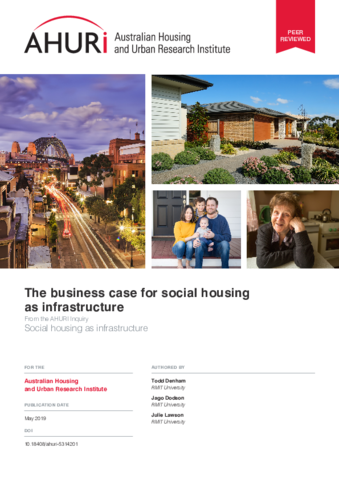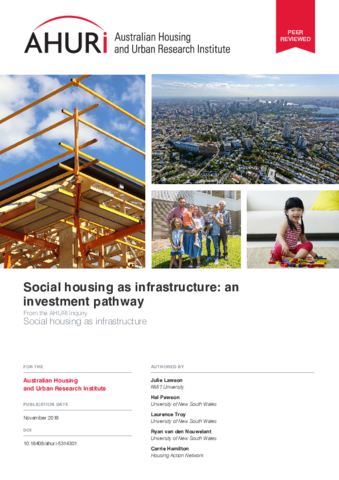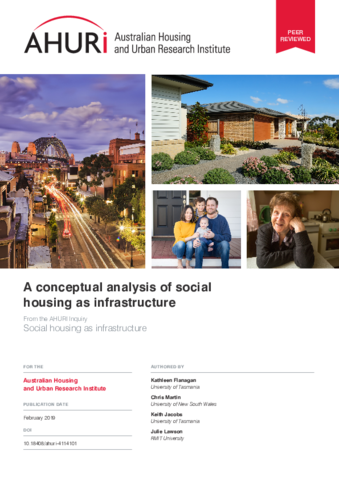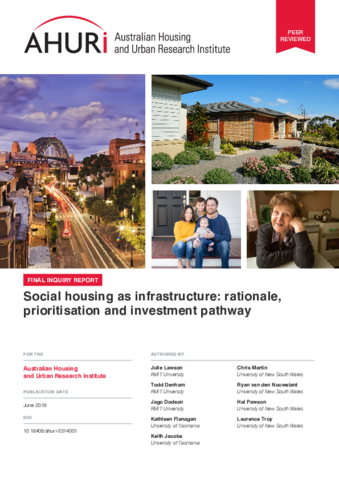This research Inquiry considered the case for social housing as infrastructure and examined different approaches to its investment.
Understood in this way, social housing can be aligned with developments in infrastructure policy more broadly, including shifts towards greater transparency and efficiency in project appraisal and funding prioritisation, as well as emerging financing, development and operating structures.
There is increasing interest in methods of calculating the benefits of social housing relative to cost, including the savings that might accrue in other areas of government expenditure, and recognising the broader social and economic contribution that social housing can make. New investment is required to ensure cities function well and that aggregate consumer demand is not adversely affected by rising housing costs, and the provision of social housing has a part to play in these efforts.
The Inquiry recommends the establishment of a national housing authority, which could establish the level of funding required for state- and local-level efforts to develop needs based capital investment programs. This Inquiry recommends two methodologies for the supporting appraisal of social housing development programs: an avoided costs methodology, which is a financial assessment of net savings to government of social housing provision due to lower frequency of use of health, justice and welfare services; and an economic analysis based on the equivalent private market rental value of social housing, predicated on the assumption that the rent represents the ‘willingness to pay’ for the bundle of goods provided by the housing (including security, social inclusion, health, access to services, amenity and wellbeing).





